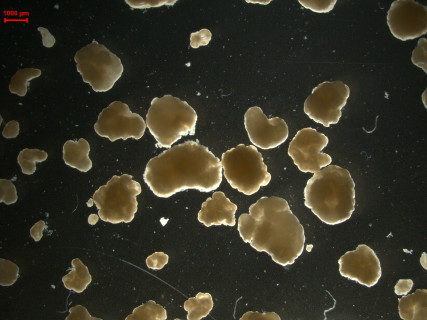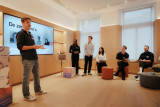The next step of water recycling: how to upcycle waste-water into useable material?
On a daily basis, we use 130-160L water per house hold in the Netherlands. In order to clean and re-use this water in a sustainable way, our waste-water streams are being recycled in so called waste-water treatment plants. However, the waste streams of these treatment plants are still being digested or incinerated. In order to fully close the circular loop of our water management, we need to turn these waste streams into useable products. Researchers from AMS Institute and TU Delft will take us into the world of upcycling valuable raw materials, such as bio-composite and plastics from waste-water streams. What can we create from waste-water; and are citizens ready for such extensive upcycling processes: would you be willing to use a disposable fork or medicine made from waste streams?
With amongst others:
- Peter Mooij | Wetenschapper en algenexpert
- Wouter de Buck | Advisor Watertechnology, Arcadis
Peter Mooij (1985) finished his PhD on Lipid and sugar production by mixed cultures of microalgae at the Delft University in 2015. He wrote a popular science book on how algae will save the world, was blogger for the Faces of Science program of the Royal Netherlands Academy of Arts and Sciences, gave a talk at TEDxDelft and presented his research on national TV and radio.
In his research, Peter focusses on creating a composite material from two municipal waste-streams. Two municipal waste-streams can be transformed in a nature-based composite, which on its turn can be used to produce park benches, bike parts or any other composite product. For the city this translates to the upcycling of two waste streams and a smaller dependency on fossil resources.
Wouter de Buck is advisor Watertechnology at Arcadis and main coordinator at The Nutrient Platform, a cross-sectoral network of Dutch organizations from the water sector, agriculture, waste sector and chemical industry that have joined forces to close nutrient cycles. The Nutrient Platform aims to turn the surplus of phosphorus from ‘waste’ streams (wastewater, sludge, manure, swill) in the Netherlands and recycled them into valuable new products (fertilizers, animal feed, chemicals).





